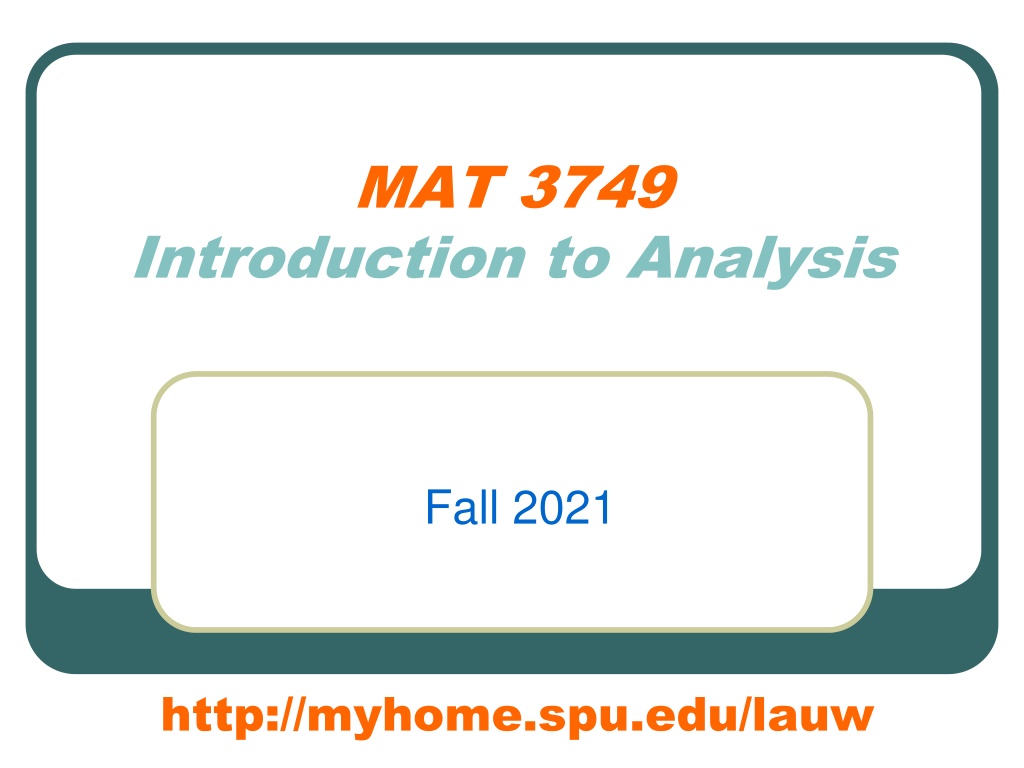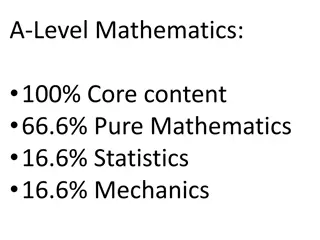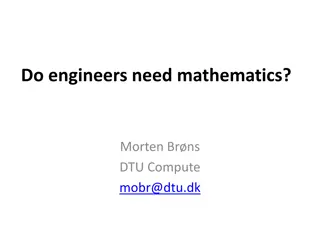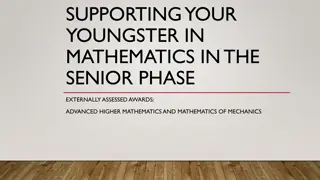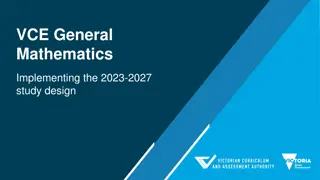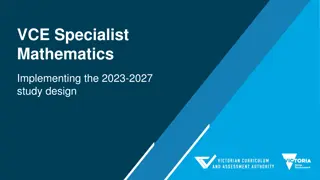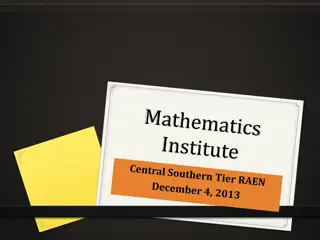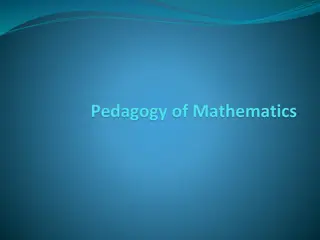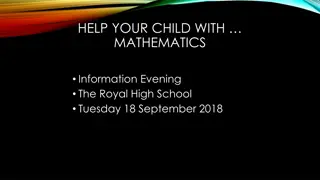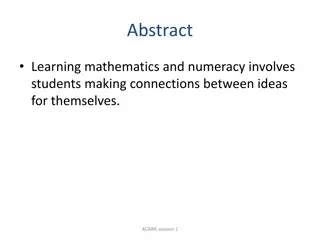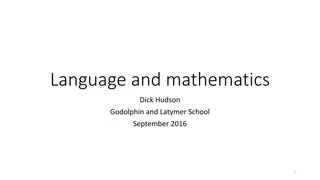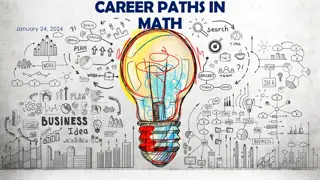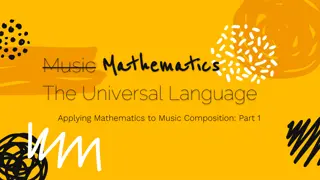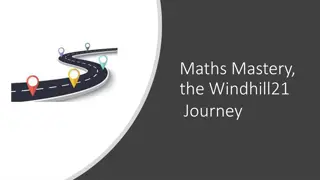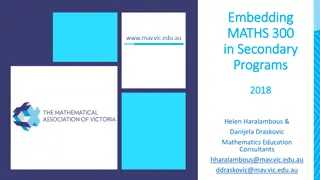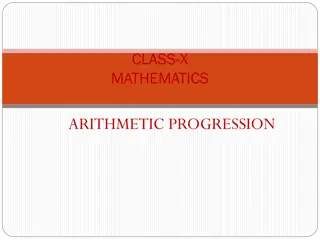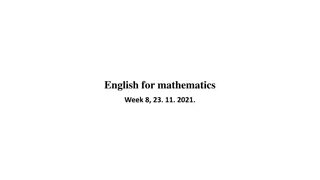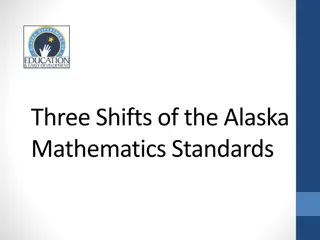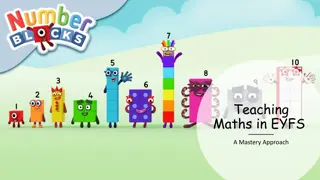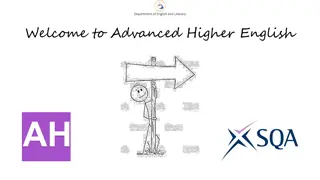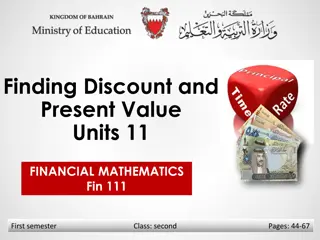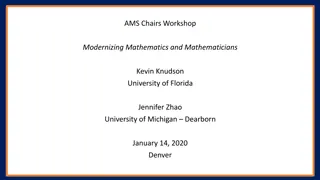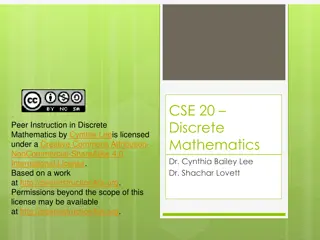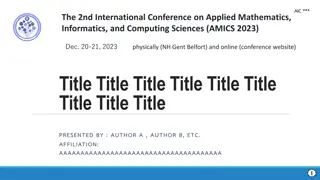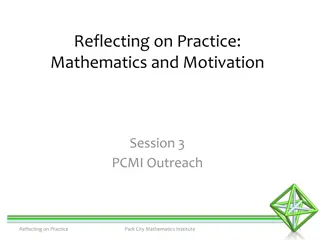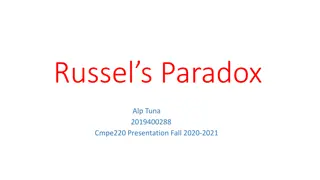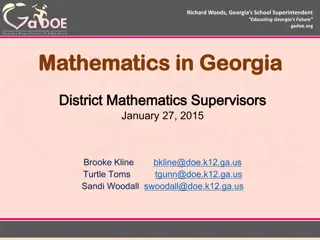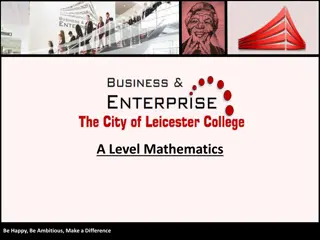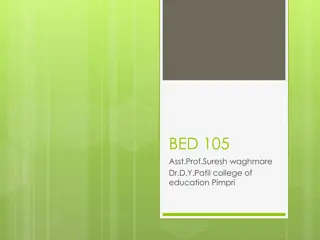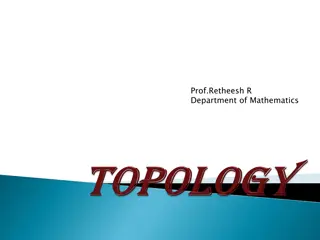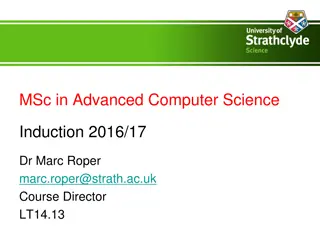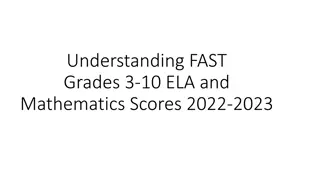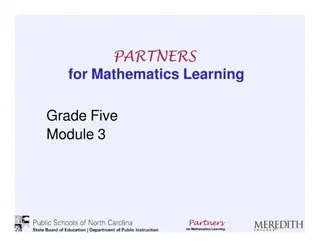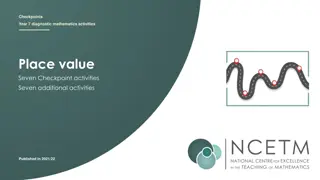Understanding Analysis: Insights and Challenges in Advanced Mathematics
Dive into the world of advanced calculus and real analysis with insights from Dr. Wai W. Lau’s course at SPU. Explore the challenges and rewards of mastering calculus, the importance of multiple exposures to the subject, and the skills needed to excel in mathematical proofs. Gain valuable perspectives from renowned mathematicians and prepare yourself for the journey ahead in improving your mathematical reasoning and critical thinking abilities.
Download Presentation

Please find below an Image/Link to download the presentation.
The content on the website is provided AS IS for your information and personal use only. It may not be sold, licensed, or shared on other websites without obtaining consent from the author. Download presentation by click this link. If you encounter any issues during the download, it is possible that the publisher has removed the file from their server.
E N D
Presentation Transcript
MAT 3749 Introduction to Analysis Fall 2021 http://myhome.spu.edu/lauw
Dr. Wai W. Lau Dr. Lau Wai
Dr. Wai W. Lau Dr. Lau Y Wai =
Dr. Wai W. Lau Dr. Lau Y Wai = = Why?
Course Web Page http://myhome.spu.edu/lauw Link to this document and other course information
Office Hours See course web page By Appointment
Introduction nobody (well, almost nobody) understands calculus fully (especially the theoretical parts) the first time around; multiple exposures are required. Exner, Inside Calculus (p. ix)
What to expect from an Analysis course? taking the first course in advanced calculus or real analysis in which students grapple with limits, and often at the same time as learning to prove, has never been exactly easy for anybody. Exner, Inside Calculus (p. ix)
What to expect from an Analysis course? Advanced calculus is a wonderful course in which far too many students previously successful in mathematics fail (or at least experience great frustration in achieving minimally acceptable results). Exner, Inside Calculus (p. ix)
What to expect from an Analysis course? Like many others, I found real analysis the hardest of the math major requirements; it took me half the semester to catch on. So don t worry: just keep at it, be patient, and have fun. Morgan, Real Analysis (p. vii)
Cars, Drivers, Mechanics, Engineers,
Introduction One of the goals of this course is to continue improving your ability to read, write, and critique mathematical proofs We are going to learn how to do prove in the context of Calculus/Analysis.
Prerequisites Prerequisites Calculus III and (Discrete Mathematics or MAT 3100)
Text Text Free Textbook will be provided.
Objectives By the end of the course, a student should know the basic properties of cardinality of sets know the basic properties of the real number system know the basic properties of the topology of the real line understand the concepts of Supremum and Infimum understand and able to apply the precise definitions of limits and continuity of functions understand the concept of uniform continuity understand and able to prove and apply the Intermediate Value Theorem
Objectives understand the differentiability of functions and the basic differentiation rules understand and able to prove and apply the Intermediate Value Theorem for Derivatives and Mean Value Theorem understand and able to prove and apply L'Hospital's rule understand and able to prove and apply Taylor's Theorem
What Would You Expect to See in Upper Division Courses at SPU?
A Conversation Between Liz, Karla, and Josh
Expectations Able to provide written explanations of the ideas behind key concepts. Able to clearly present and explain solutions to problems in both written and verbal form. Read and write proofs appropriate at this level. Able to work as a team to solve problems. Able to work independently to solve problems. Able to apply knowledge to new situations.
Homework Homework problem sets will be assigned. All work must be typed and print single- sided. The ONLY references you can use are the textbook and the lecture note. You cannot use any other resources such as other books, software, and the internet.
Homework *.doc Type with Equation Editor *.docx Saved to.docx to type with MS Equation Editor
Homework Group HW Individual HW
Group Homework You are required to work together in a group of 2 or 3. I set up four initial groups. You may switch groups based on mutual agreements.
Individual Homework No discussion with any other person, except may be the instructor. Discussing or copying homework is considered as an act of academic dishonesty
Homework Homework must be written with proper logical format. Otherwise, no points will be given. The instructor may make you redo your homework sets (again and again) until the presentations are acceptable.
Homework Staple your Homework. Points will be taken off if you fail to do so. Homework is due at the beginning of the class. Absolutely no late homework.
Class Class Participation: Participation: 1. I will ask questions during the class time. 2. There are group classwork/labs in some class sessions. 3. You are expected to have printed handouts. At the end of the quarter, your grades on class participation will be determined by the above activities and other observations by the instructor.
Exams 3 mid-term exams and a final
Points Distribution Exam 1 10/08 80 points Exam 2 11/01 100 points Exam 3 11/15 100 points Final 11/23, 9-11am 40 points Homework Daily 60 points Class Participation Daily 20 points
Final Class Grade 90% 80% 70% 60% A Range B Range C Range D Range E Below 60%
